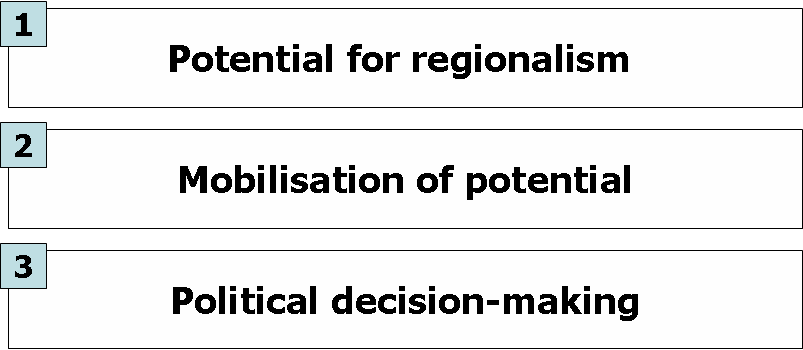
The London School of Economics and Political Science
Geography & Environment
|
|
The London School of Economics and Political Science Geography & Environment
|
| Home | CV | Thesis | Publications |
Supervisor:
The current literatures on devolution focus almost exclusively on how powers and resources should be spread over different levels of government or on the economic and political effects of devolution. Less attention is paid to why countries devolve in the way that they do. This thesis aims to address this gap in the literature by developing a theoretical framework that explores the mechanisms behind the process of devolution in advanced industrial democracies. The research on devolution is plagued by the ‘many variables, few cases’ problem. This thesis will follow Scharpf’s (1997) suggestion that, rather than drastically reducing the complexity of our explanations or reverting to mere description, we should respond to this challenge by awarding greater attention to the substantial quality of our hypotheses by organizing prior knowledge in an analytical framework. This thesis will put forward a modular explanation of the devolution process, which combines the concept of legitimacy put forward by Easton (1965), with social movement theory, spatial voting and Tsebelis’ veto player theory (2002). The resulting framework consists of three modules. It is important to stress that this framework is used as an analytical tool, not as a longitudinal description of the process. It allows us to develop more focused theories to explain each module, which can then be aggregated to create a complex and distinctly multi-causal explanation that reflects the complexity of devolution decisions or non-decisions.

Regionalism here refers to the existence of a widespread belief that, at least in certain areas, the meso arena is a more legitimate or more capable representative of the people than the central government. Where the current system does not award the meso arena powers over these areas, territorial legitimacy grievances may emerge. Drawing on the literatures on political legitimacy, the first module develops a framework that allows us to distinguish between different types of potential legitimacy grievances and how they are linked to potential support for devolution. The second module draws attention to the way in which such territorially-concentrated legitimacy grievances can be mobilised to create popular support for devolution. Based on social movements theory, it will be argued that mobilisation structures and framing process will influence the degree to which legitimacy grievances are mobilised. The third module examines under which conditions regional support for devolution translates into actual devolution. To allow for a structured comparison across federal and non-federal governmental systems, this module will be loosely based on veto player theory. It will be argued that the decision-making rules, along with the policy position of the partisan veto players in general, and the agenda-setter in specific, will ultimately determine the policy outcome. The degree to which regional support for devolution will influence policy will be argued to depend on the electoral incentives mainstream parties face to enhance their meso representational congruence as well as the ideological stance of the parties.
The usefulness of this theoretical framework in explaining the way countries devolve will be tested through longitudinal comparative case study method. The developments in Scotland are compared with Wales and Quebec
Contents:
Chapter 1 Introduction
1.1 Background
1.2 Research problem and main propositions
1.3 Justification
1.4 Methodology
1.5 Outline of the thesis
1.6 Definitions
1.7 Delimitations of scope and key assumptions
1.8 Conclusion
Chapter 2 Explaining devolution decisions and non-decision: a theoretical framework
2.1 Introduction
2.2 Literature on devolution
2.3 Theoretical framework and propositions
2.4 Conclusion
Chapter 3 Devolution decisions and non-decisions in the Great Britain and Canada (1950-2008)
3.1 Introduction
3.2 Great Britain
3.3 Canada
3.4 Comparative Conclusion
Chapter 4 Legitimacy grievances and the potential for regionalism
4.1 Introduction
4.2 Identity
4.3 Output
4.4 Ideology
4.5 Comparative Conclusion
Chapter 5 From potential support to politicised regionalism: Mobilising grievances along territorial lines
5.1 Introduction
5.2 Mobilisation structures
5.3 Framing processes
5.4 Political opportunities
5.5 Comparative Conclusion
Chapter 6 From politicised regionalism to policy change: the political game of devolution
6.1 Introduction
6.2 Devolution decisions and non-decisions in the Great Britain
6.3 Devolution decisions and non-decisions in Canada
6.4 Comparative Conclusion
Chapter 7 Conclusions
7.1 Introduction
7.2 Conclusions about each proposition
7.3 Conclusions about the research problem
7.4 Implications for theory
7.5 Implications for policy and practice
7.6 Limitations
7.7 Further research
Bibliography
Appendices